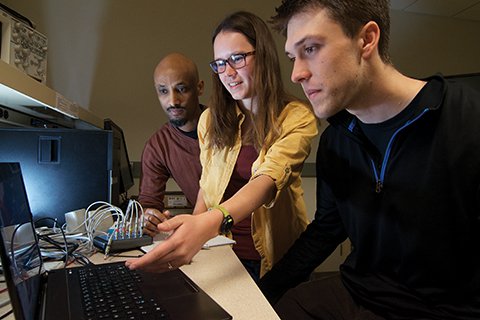Electrical engineering
Electrical engineers explore and generate technological advances that impact virtually every aspect of modern life. They deal with the study, research, design, and application of electricity, electronics, circuitry, and electromagnetism. They design, develop, and enhance components, software and systems for biomedical devices, energy and power applications, nanotechnology and material uses, computers, cell phones, and associated personal electronics as well as many other products.
Careers
- Embedded systems engineer
- Acoustic test engineer
- Magnetic recording engineer
- Automation and process technologies engineer
- Electric machine design engineer
- Telecommunications or substation field engineer
- Computer modeling engineer
- CAD and product development engineer
- Electrical control systems engineer
What will I study?
This program provides a strong foundation in science, physics, mathematics, and computer science. You will develop electrical knowledge and skills in practical experimentation, as well as learn how to analyze and interpret data applicable in areas across electrical engineering.
Emphasis areas include:
- Biomedical engineering
- Telecommunications and signal processing
- Control systems
- Electric energy systems and power electronics
- Microelectronic devices and circuit design
- Modern optics and photonics
- Magnetics
The University of Minnesota’s Bachelor of Electrical Engineering is accredited by the Engineering Accreditation Commission of ABET.

